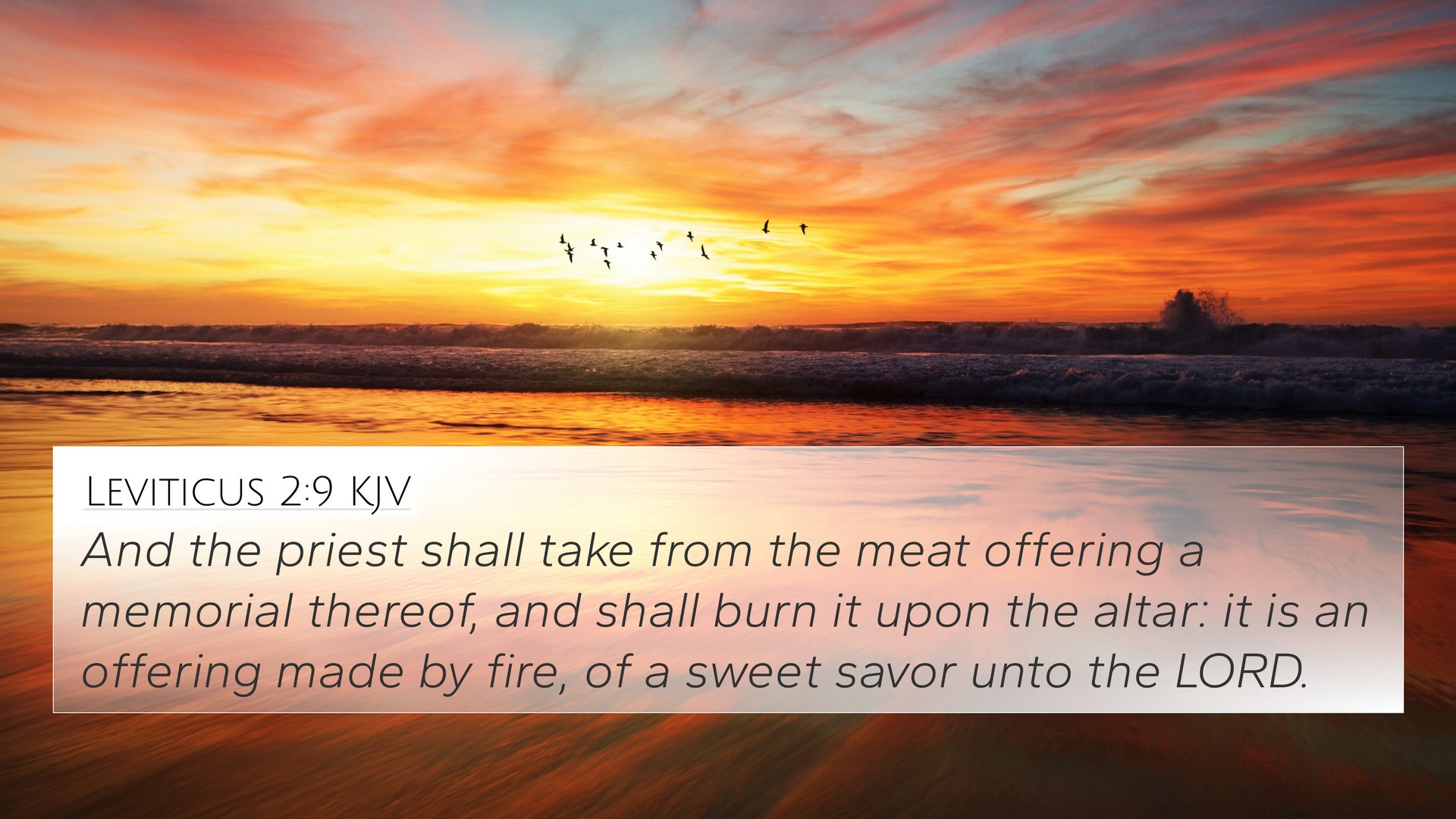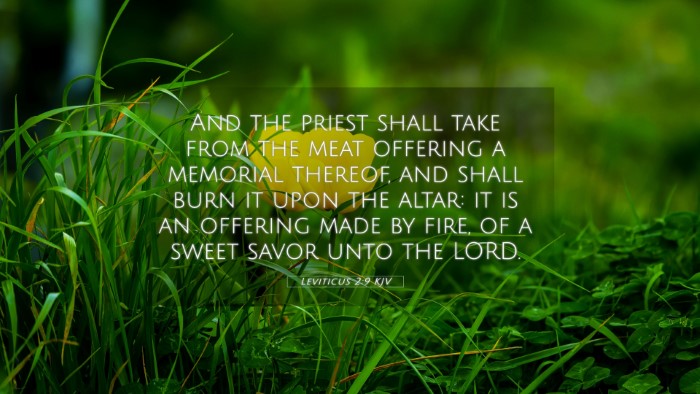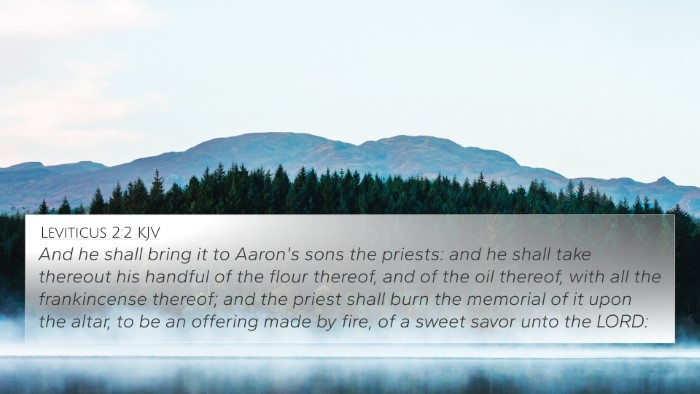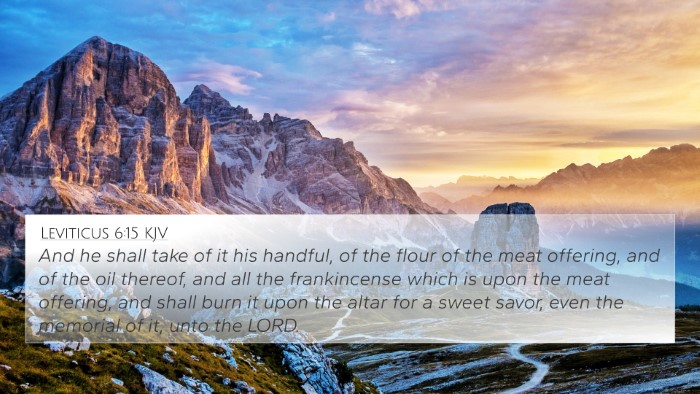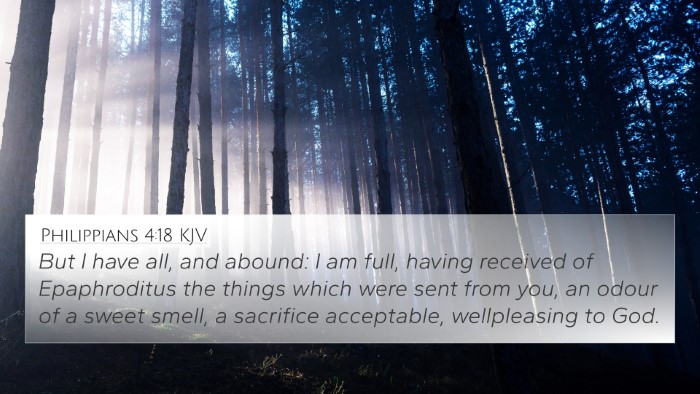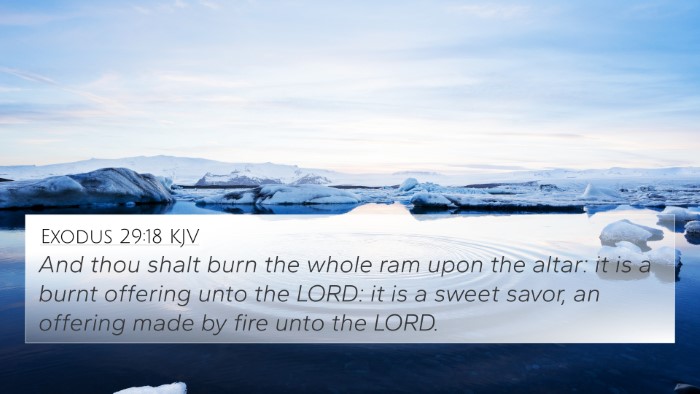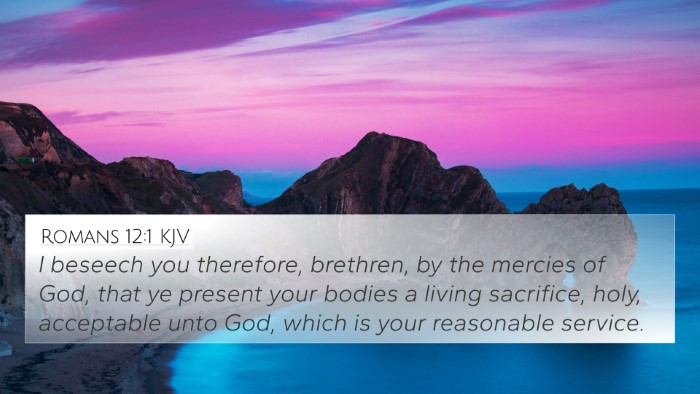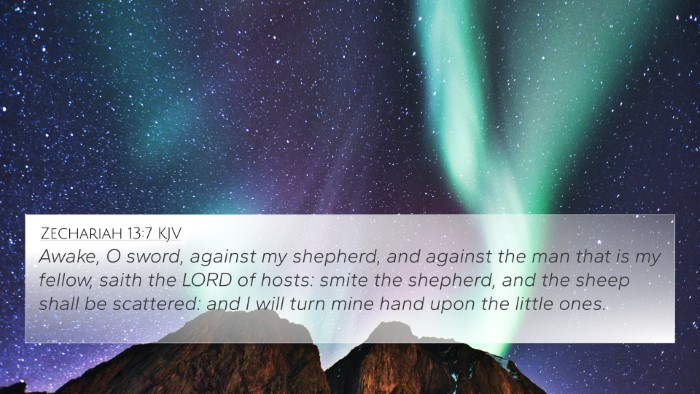Understanding Leviticus 2:9
Verse: "And the priest shall take from the meal offering a memorial thereof, and shall burn it upon the altar: it is an offering made by fire, of a sweet savour unto the LORD." (Leviticus 2:9)
Summary of the Verse's Meaning
This verse pertains to the ritual of offering grain or meal offerings in the Israelite sacrificial system. It highlights the importance of presenting offerings to God in a manner that is pleasing and acceptable. Additionally, it shows the role of the priest in mediating between God and the people through these offerings.
Insights from Public Domain Commentaries
-
Matthew Henry:
Henry emphasizes the symbolism of the meal offering, suggesting that it represents the dedication of one's labor to God. He interprets the sweet savor as indicative of God's acceptance of the offering and His pleasure in the worshiper who presents it sincerely.
-
Albert Barnes:
Barnes elaborates on the significance of the meal offering being a remembrance when offered by the priest. He notes that this act serves as a reminder both to God and to the worshiper of the continual need for atonement and acknowledgment of God’s provision in their lives.
-
Adam Clarke:
Clarke provides a deeper exploration of the ingredients of the meal offering, indicating that the quality of the offering reflects the devotion of the offerer. He also highlights that the fire consumed by the altar represents the acceptance of the offering by God.
Biblical Cross-References
Leviticus 2:9 is connected to a variety of other scriptures which provide deeper understanding and context:
- Exodus 29:18: Discusses the burnt offering and its pleasing nature to God.
- Numbers 15:3-5: Outlines instructions for offering grain offerings with burnt offerings.
- Psalm 51:17: Establishes that God desires a broken spirit more than ritual offerings.
- Romans 12:1: Calls believers to present themselves as living sacrifices to God.
- Hebrews 13:15: Encourages offerings of praise to God as sacrifices.
- Matthew 5:23-24: Indicates the importance of reconciliation before offering to God.
- Philippians 4:18: Paul describes gifts received as a fragrant offering well-pleasing to God.
Thematic Connections
The themes present in Leviticus 2:9 create a rich tapestry of meaning when linked with cross-references:
- God’s desire for heart-felt worship rather than mere ritualistic acts.
- The relationship between priesthood and community in offering sacrifices.
- The concept of food as sustenance and offering, illustrating God’s provision.
- The importance of atonement and recognition of sinfulness before the Almighty.
- Spiritual offerings as reflections of one’s character and commitment to God.
Cross-Referencing Methodologies
Tools for Bible cross-referencing can greatly enhance understanding, including:
- Bible concordances that outline themes and subjects.
- Bible cross-reference guides that spotlight relationships between verses.
- Study methods that encourage thematic exploration through various Biblical texts.
Conclusion
The study of Leviticus 2:9, alongside its cross-references, unveils the layers of meaning within the act of worship. It is a call to present our very lives as offerings unto God, reminding us that true worship is characterized by sincerity and heart. Through a comprehensive approach that includes the insights of respected commentators, we gain a profound understanding of the scriptural call to worship, which transcends time and context.
Further Study Recommendations
Those seeking to dive deeper into cross-referenced themes should explore:
- Comparative studies between the offerings in the Old Testament and their fulfillment in Christ.
- Inter-Biblical dialogue highlighting connections between the Old and New Testament sacrifices.
- Analysis of similar themes in the teachings of the Apostles regarding offerings and sacrifices.
